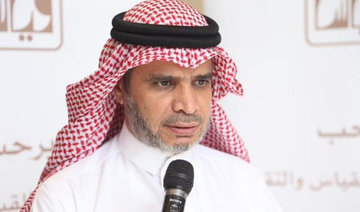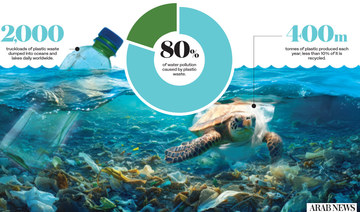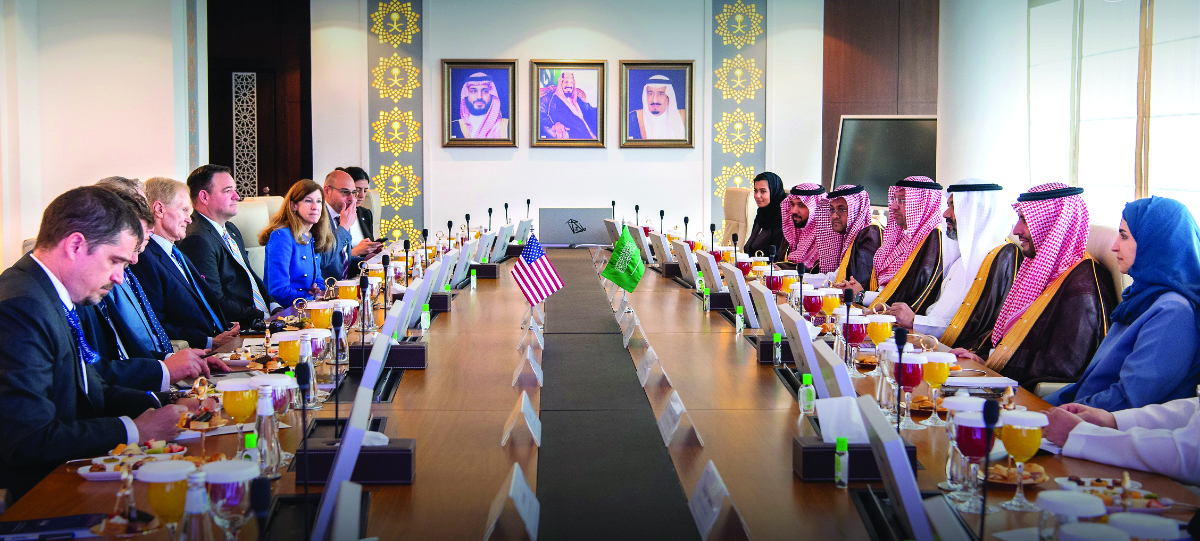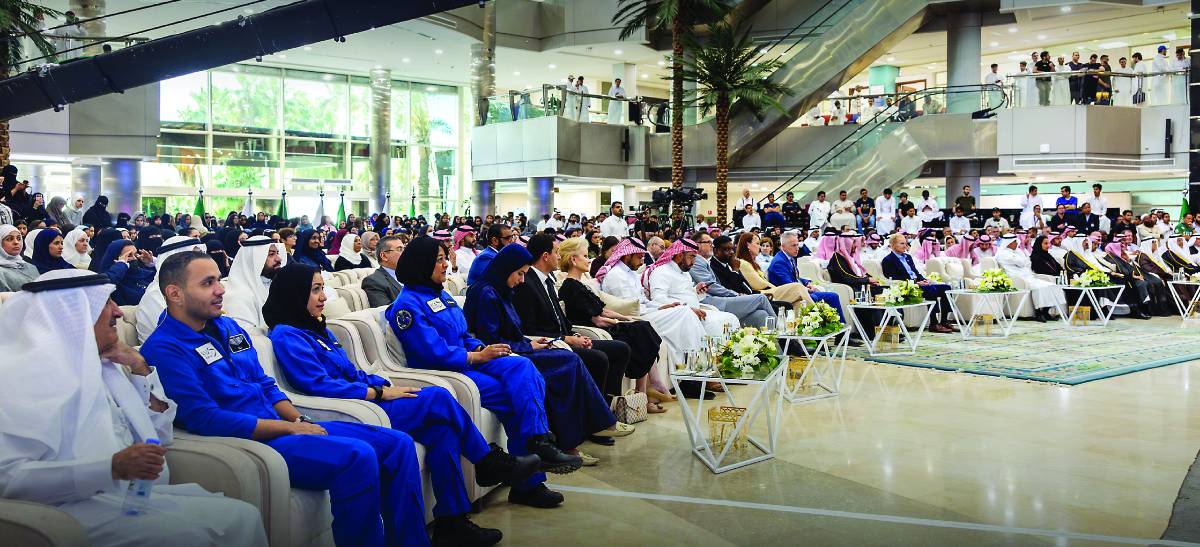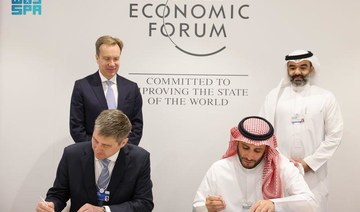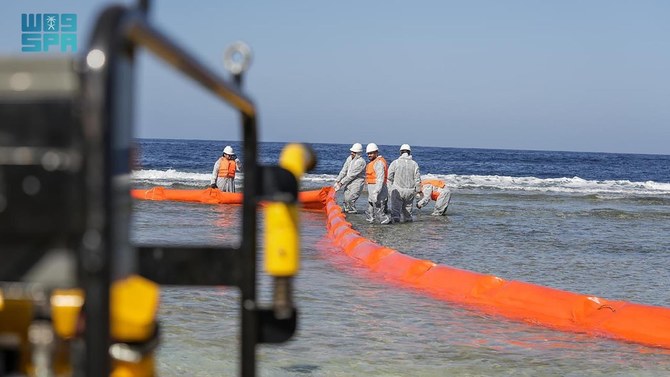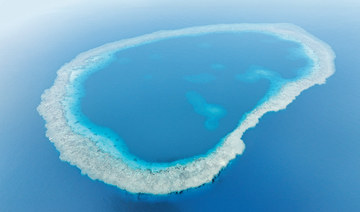JEDDAH/RIYADH: The Saudi Ministry of Health ended its COVID-19 press conferences, after the country lifted most precautionary and preventive measures related to combating coronavirus.
In the final press conference, Health Ministry spokesman Mohammed Al-Abd Al-Aly and Interior Ministry spokesman Lt. Col. Talal Al-Shalhoub thanked everyone who had taken part in organizing the briefings for the past two years, as well as thanking the media and the general public for their awareness and adherence to precautionary measures to tackle the pandemic.
“The Kingdom has almost overcome the pandemic completely, thanks to the expansion in the immunization drive and enhanced community awareness programs,” Al-Aly told the press conference.

The issue of daily statistical reports of coronavirus cases will also be suspended.
Mohammed Al-Abd Al-Aly
Health Ministry spokesman
From March 22, 2020, at the start of the pandemic in the Kingdom and amid a time of uncertainty and fear, people across the country would tune in to the ministerial press conferences to learn about the virus and seek reassurance from experts about the measures the government was taking during the global health emergency.
Almost two years on, there have been 225 press conferences featuring different ministries and government agencies.
They included the ministries of interior and education, the Saudi Food and Drug Authority, and the Public Health Authority. Together, they guided the public on the steps needed to combat the pandemic.
HIGHLIGHTS
• In the final press conference, Health Ministry spokesman Mohammed Al-Abd Al-Aly and Interior Ministry spokesman Lt. Col. Talal Al-Shalhoub thanked everyone who had taken part in organizing the briefings for the past two years, as well as thanking the media and the general public for their awareness and adherence to precautionary measures to tackle the pandemic.
• From March 22, 2020, at the start of the pandemic in the Kingdom and amid a time of uncertainty and fear, people across the country would tune in to the ministerial press conferences to learn about the virus and seek reassurance from experts about the measures the government was taking during the global health emergency.
• Almost two years on, there have been 225 press conferences featuring different ministries and government agencies. They included the ministries of interior and education, the Saudi Food and Drug Authority, and the Public Health Authority. Together, they guided the public on the steps needed to combat the pandemic.
Taiseer Almofarej, executive director of corporate communication and awareness at the SFDA, said that each stage he participated in was a response to what was happening at the time.
“At the beginning we sensed a responsibility during the slogan we are all responsible, and then anticipation during the phase of returning (to normal life) cautiously, and motivation during the vaccine rollout,” Almofarej told Arab News.
Education Ministry spokesperson Ibtisam Al-Shehri said the COVID-19 crisis was difficult for everyone, and even more so for the millions of students and hundreds of thousands of teachers in the Kingdom because of the uncertainty brought on by school closures and the unfamiliarity with new teaching methods. 
She recalled the scenes of empty schools and classrooms after in-person attendance was suspended, but also the efforts that were made to reach students during lockdown.
“I felt proud that I was part of the work team who, with the support of rational leadership and follow-up from the minister of education, made great efforts to continue the study and educational process for students and not stop it for one day,” she told Arab News.
Al-Shehri, who is the first Saudi woman to be an official spokesperson in a government agency, said that while social relations were affected during the pandemic due to precautionary measures, people were able to adapt to the new conditions.
“We are eagerly returning to normal life,” she added, expressing her happiness that the crisis was being overcome.
Saad Al-Hammad had permission to move during the curfew period because of the nature of his work, as a spokesperson for the Ministry of Human Resources and Social Development, and he remembered how Riyadh’s streets were almost empty of pedestrians, cars, and activity.
“It was making me constantly think about the human condition and life,” he told Arab News.
He said he was happy at the declining number of COVID-19 cases in Saudi Arabia and how life was returning to normal.
Al-Hammad, who also writes for the online Sabq newspaper, said: “The pandemic may have drawn new patterns of relationships and human communication, but it did not shake our connection with our loved ones, relatives and friends.”
Sultan Al-Qahtani, the spokesman for the Saudi Housing Program, felt that his routine had “really changed” since Sunday.
He also said that the lessons learned during the pandemic were useful and had benefits, adding that having to communicate remotely for long periods had placed him in several difficult situations.
“Distance communication is a form of communication, but sometimes, especially in delicate or complex topics, for example, you may need to communicate with others face to face.”
The Ministry of Health press conference aired everyday during the beginning of the pandemic in 2020. It then went on to three times a week, and eventually ended up taking place once a week.
Al-Aly said the ministry would continue providing important information and developments related to the pandemic and that a press conference would be held only if necessary or new developments took place.
The ministry has also stopped the daily reports being shared though the Saudi Press Agency.
“The issue of daily statistical reports of coronavirus cases will also be suspended. However, the data will be available for experts and specialists on the official website of the ministry,” the spokesman said.
The precautionary measures lifted include all social distancing measures, including the axing of social distancing in the Two Holy Mosques. Wearing masks outdoors is no longer mandatory.
Saudi Arabia will no longer require travelers to undergo mandatory COVID-19 quarantine upon arrival in the Kingdom. Passengers will also no longer need to provide a PCR test upon their arrival.
But all arrivals in the Kingdom on visit visas of any kind are required to get insurance that covers the cost of treatment from any coronavirus infection.
Wearing masks indoors is still required and people will still need to show their immunity status on the Tawakkalna app to enter commercial establishments such as hotels and restaurants.
“Feelings of pride prevail over any other feeling, and we have the right to be proud of what Saudi Arabia has provided during the pandemic at all health, social, humanitarian and economic levels, as these efforts were a model for professional dealing in crisis management worldwide,” Almofarej said.








